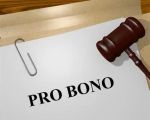- what-is-a-judgment-lien-and-how-does-it-work - What Is a Judgment Lien and How Does It Work?
- how-a-judgment-lien-is-created - How a Judgment Lien Is Created
- types-of-assets-affected-by-a-judgment-lien - Types of Assets Affected by a Judgment Lien
- real-world-examples-of-judgment-liens - Real-World Examples of Judgment Liens
- how-a-judgment-lien-affects-property-owners - How a Judgment Lien Affects Property Owners
- how-to-remove-or-satisfy-a-judgment-lien - How to Remove or Satisfy a Judgment Lien
- when-to-consult-a-lawyer-for-judgment-lien-issues - When to Consult a Lawyer for Judgment Lien Issues
1. What Is a Judgment Lien and How Does It Work?
A judgment lien is a legal claim placed on a person’s property by a creditor who has won a lawsuit against them. It gives the creditor the right to take possession of the debtor’s property—often real estate—if the debt isn’t paid. In essence, it turns a court judgment into a real asset-backed claim, which can follow the debtor even after the case is over.
Unlike a voluntary lien (such as a mortgage), a judgment lien is involuntary. It's not something you choose—it’s something imposed by law, and it can seriously impact your financial freedom if not addressed properly.
2. How a Judgment Lien Is Created
2.1 Court Judgment and Entry
The process begins when a court rules in favor of a creditor. Once the judgment is entered, the creditor can file the lien against the debtor’s property. This typically requires submitting legal documentation to the local county recorder’s office.
2.2 Public Record and Enforcement
Once recorded, the judgment lien becomes a matter of public record. This means anyone checking the property title—such as potential buyers—will see the lien, which can prevent the sale or refinancing of the property. Some states require renewal after a certain period, while others allow the lien to remain active for several years.
3. Types of Assets Affected by a Judgment Lien
3.1 Real Estate
The most common asset affected by a judgment lien is real estate. If you own a home, the lien attaches to it—meaning the creditor may claim proceeds if the house is sold or refinanced before the debt is cleared.
3.2 Personal Property and Business Interests
In some jurisdictions, judgment liens can also apply to personal property like vehicles, or even to business equipment and interests. These liens limit your ability to transfer or leverage those assets until the debt is resolved.
4. Real-World Examples of Judgment Liens
4.1 The Inherited Debt Trap
In 2021, a man in New Jersey attempted to sell a house he inherited from his uncle—only to find it had an unresolved judgment lien from an old lawsuit. The lien had gone unnoticed for years but had to be paid off before the property could legally change hands.
4.2 The Contractor Dispute
A small business owner in Texas was sued by a contractor over a disputed invoice. After losing in court, the contractor filed a lien on the owner’s commercial property. It wasn’t until the business tried to apply for a loan that the lien came to light, halting expansion plans. Had the owner understood his rights earlier, he might have negotiated or contested the lien more effectively.
5. How a Judgment Lien Affects Property Owners
5.1 Credit Impact and Financial Limitations
A judgment lien can significantly damage your credit score and reduce your financial flexibility. Lenders view it as a serious red flag. Selling or refinancing the property becomes nearly impossible unless the lien is satisfied or released.
5.2 Legal and Emotional Stress
Besides the financial burden, judgment liens can cause stress and uncertainty, especially if the debtor is unaware of the lien’s existence. It's not uncommon for homeowners to find out only during a transaction, creating unexpected complications.
6. How to Remove or Satisfy a Judgment Lien
6.1 Payment or Settlement
The most direct way to remove a judgment lien is to pay the debt in full. In many cases, creditors may accept a lower settlement. Always get any agreement in writing. Once paid, a release of lien must be filed to clear the record officially.
6.2 Challenging the Lien Legally
If the lien was placed improperly or if you believe the judgment was unfair, legal recourse may be available. You can file a motion to vacate the judgment or appeal the case. Professional advice from firms like ESPLawyers can help navigate this complex path and ensure your property rights are protected.
7. When to Consult a Lawyer for Judgment Lien Issues
7.1 Situations Requiring Expert Help
If you're facing a high-value lien, contesting the judgment, or unsure about how the lien will affect your assets, legal help is essential. A qualified lawyer can negotiate with creditors, uncover procedural errors, and potentially have the lien removed or reduced.
7.2 Reliable Legal Assistance
Whether you’re a homeowner, small business owner, or executor of an estate, judgment liens can become legal roadblocks. Firms like ESPLawyers specialize in these cases and offer expert services tailored to protecting your financial interests and guiding you toward a resolution.








